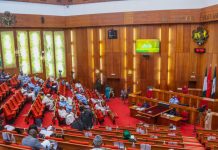Renting a property is a common practice in Lagos, Nigeria, as it provides individuals and families with the flexibility of living in different areas without the commitment of purchasing a home. However, in order to avoid disputes and ensure a fair and legal rental agreement, it is crucial to have an understanding of the tenancy laws in Lagos.
The Lagos Tenancy Law, also known as the Tenancy and Recovery of Possession Law of Lagos State 2011, is the primary legislation that governs the landlord-tenant relationship in the state. It sets out the rights and responsibilities of both parties and provides a framework for resolving disputes.
One of the key aspects of the tenancy law in Lagos is the provision for written tenancy agreements. According to the law, it is mandatory for both landlords and tenants to have a written tenancy agreement in place. The agreement should include details such as the names of both parties, the duration of the tenancy, the agreed rental amount, and any additional terms and conditions. This agreement serves as evidence to resolve any disputes that may arise during the tenancy period.
The law also regulates the payment of rent. It stipulates that the rent for residential properties in Lagos should be paid in advance, either monthly or quarterly, as agreed upon in the tenancy agreement. Additionally, landlords are required to issue a receipt for every rental payment made by the tenant. This receipt should include the amount paid, the date of payment, and other relevant information.
Furthermore, the Lagos Tenancy Law ensures that landlords cannot unreasonably increase the rent during the tenancy period. It states that any changes in the rental amount should be made after the expiration of the tenancy period, or as specified in the tenancy agreement. This provision protects tenants from excessive and arbitrary rent hikes.
In terms of maintenance and repairs, the law places the responsibility on landlords to maintain the property in a habitable condition throughout the tenancy period. Landlords are expected to carry out necessary repairs promptly, especially for issues that affect the health and safety of tenants. Tenants, on the other hand, are responsible for keeping the property clean and reporting any damages or necessary repairs to the landlord.
The Lagos Tenancy Law also covers the issue of eviction. It ensures that landlords cannot forcibly evict tenants without following the proper legal procedures. Before evicting a tenant, a landlord must provide a written notice to the tenant, specifying the reasons for eviction and allowing the tenant a reasonable time to vacate the property. If the tenant refuses to comply, the landlord can initiate legal proceedings to recover possession of the property.
To resolve disputes between landlords and tenants, the Lagos Tenancy Law establishes the Lagos State Tenancy Tribunal. The tribunal is responsible for hearing and determining cases related to tenancy matters, including disputes over rent, repairs, and evictions. Parties involved in a dispute can approach the tribunal for resolution rather than going through lengthy court processes.
In conclusion, understanding the tenancy laws in Lagos is crucial for both landlords and tenants to ensure a fair and legally-binding rental agreement. The Lagos Tenancy Law provides a framework that protects the rights of both parties and establishes procedures for dispute resolution. By familiarizing themselves with these laws, individuals can navigate the rental market in Lagos with confidence and avoid unnecessary conflicts.
ΑBIODUN OLUFOTE. Esq. BL, ArbMed
Real Estate Consultant & Media Law.
Mobile: +234 8038462700
Email: olufoteabiodun@yahoo.com



























